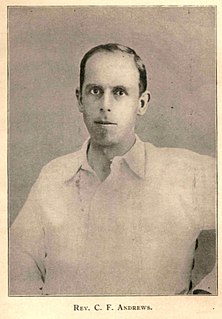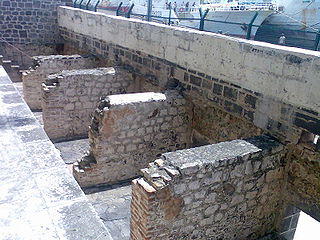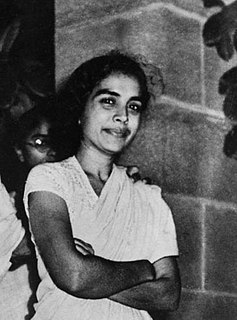Moka is a village in Mauritius located in the Moka District, the western part of the village also lies in the Plaines Wilhems District. Since 1967 it forms part of Constituency No. 8 Quartier Militaire and Moka. The village is administered by the Moka Village Council under the aegis of the Moka District Council. According to the census made by Statistics Mauritius in 2011, the population was at 8,846. The elevation is 203 meters and can be up to 425 meters in some places. Moka is directly on the other side of the Moka Range from Port Louis. The village is close to the mountain Le Pouce and the town Beau-Bassin Rose-Hill. Réduit is a suburb of the village where the State House and University of Mauritius is situated. The village is also home to the Mauritius Broadcasting Corporation and the Mahatma Gandhi Institute.
Higher education in Mauritius includes colleges, universities and other technical institutions. Public university education has been free to students since 2019. The sector is managed by the Higher Education Commission (HEC) which has the responsibility for allocating public funds, and fostering, planning and coordinating the development of post-secondary education and training. Formerly the Tertiary Education Commission, in 2020 it was reformed into the HEC and a separate Quality Assurance Authority (QAA) for auditing of qualifications.
Narhari Dwarkadas Parikh was a writer, independence activist and social reformer from Gujarat, India. Influenced by Mahatma Gandhi, he was associated with Gandhian institutes throughout his life. He wrote biographies, edited works by associates and translated some works. His writing also reflected Gandhian influence.

Charles Freer Andrews was an Anglican priest and Christian missionary, educator and social reformer, and an activist for Indian independence. He became a close friend of Rabindranath Tagore and Mahatma Gandhi and identified with the Indian liberation struggle. He was instrumental in convincing Gandhi to return to India from South Africa, where Gandhi had been a leading light in the Indian civil rights struggle.
Dennis Gilmore Dalton is a professor of political science from the United States. From 1969 until 2008, Dalton was the Ann Whitney Olin Professor of Political Science at Barnard College, Columbia University. Dalton's work had a particular focus on the thought and leadership of Mahatma Gandhi and civil disobedience. Before his retirement from Barnard College at Columbia University, he gave lectures on political theory from Plato to the present, eastern and western philosophies. He began teaching at Barnard in 1969, teaching classes in classical and modern political theory.

Mauritians are nationals or natives of the Republic of Mauritius and their descendants. Mauritius is a multi-ethnic society, with notable groups of people of South Asian, Sub-Saharan African, European, and Chinese descent, as well those of a mixed background from any combination of the aforementioned ethnic groups.

The Immigration Depot is a building complex located in Port Louis on the Indian Ocean island of Mauritius, the first British colony to receive indentured, or contracted, labour workforce from many countries. From 1849 to 1923, half a million Indian indentured labourers passed through the Immigration Depot, to be transported to plantations throughout the British Empire. The large-scale migration of the labourers left an indelible mark on the societies of many former British colonies, with Indians constituting a substantial proportion of their national populations. In Mauritius alone, 68 percent of the current total population is of Indian ancestry. The Immigration Depot has thus become an important reference point in the history and cultural identity of Mauritius.

Sushila Nayyar, also spelled 'Nayar', was an Indian physician, veteran Gandhian and politician. She played a leading role in several programmes for public health, medical education and social and rural reconstruction in her country. Her brother, Pyarelal Nayyar, was the personal secretary to Mahatma Gandhi She herself acted as Gandhi's personal physician and became an important member of his inner circle. Later, she wrote several books based on her experiences. In post-Independent India, she contested for political office and served as India's health minister.
Nautamlal Bhagavanji Mehta, or the Nagar Sheth of Jetpur was an Indian independence activist and a supporter of Mahatma Gandhi. He was also a prominent businessman and a pioneer of the Gandhian Movement in Gujarat. He is also believed to be the first to bestow the title "Mahatma" to Gandhi, not Rabindranath Tagore, as many believe. Mehta wrote a manpatra using the term, which has been authenticated by the National Gandhi Museum in New Delhi. However there is a Genuine claim that the Peethadhipati of the Bhuvaneshwari Peeth in Gondal in Gujarat was the first person to bestow the title of Mahatma to Late Shri Mohandas Karamchand Gandhi, soon after he returned to India from South Africa. This can be verified from the present Pethadhipati of the Gondal Peeth.
The Tagore family, with over three hundred years of history, has been one of the leading families of Calcutta, India, and is regarded as one of the key influencers during the Bengali Renaissance. The family has produced several persons who have contributed substantially in the fields of business, social and religious reformation, literature, art and music.
Sarat Kumar Ray (1876–1946) was a member of the royal family of Dighapatia. A noted scholar, he was the son of the Raja (King) Pramathanath Ray and lived in the Maharaja's Palace. Along with historian Ramaprasad Chanda, he co-founded the Varendra Research Museum, which Lord Dundas the Governor of Bengal, inaugurated in November 1919. He was well traveled, and visited England in 1900. He was a friend of Rabindranath Tagore.
The Cult of the Charkha is an essay by Rabindranath Tagore which first appeared in September 1925 in the Modern Review. In the essay Tagore offered critique on the Gandhian ethic of "charkha-spinning" as an activity which could rejuvenate the Indian masses during the Indian independence movement.

India–Mauritius refers to the historical, political, economic, military, social and cultural connections between the Republic of India and the Republic of Mauritius. Connections between India and Mauritius date back to 1730, diplomatic relations were established in 1948, before Mauritius became independent state. The cultural affinities and long historical ties between the two nations have contributed to strong and cordial relations between the two nations. More than 68% of the Mauritian population are of Indian origin, most commonly known as Indo-Mauritians. India and Mauritius co-operate in combating piracy, which has emerged as a major threat in the Indian Ocean region and Mauritius supports India's stance against terrorism.
Krishna Kripalani was an Indian freedom fighter, author and parliamentarian. He wrote a number of books on Rabindranath Tagore, Mahatma Gandhi and on Indian literature.
Banarsidas Chaturvedi was a noted Hindi-language writer, journalist and recipient of Padma Bhushan awarded by Government of India in 1973. He was born on 24 December 1892 in Firozabad in Uttar Pradesh and died on 2 May 1985. He served as a nominated member of Rajya Sabha for twelve years.

Shobhana Ranade is an Indian social worker and Gandhian, known for her services towards her cause of destitute women and children. The Government of India honoured her in 2011, with the Padma Bhushan—the third highest civilian award—for her services to the society.
Marjorie Sykes was a British educator who went to live in India in the 1920s and joined the Indian independence movement, spending most of the remainder of her life in India. She wrote many books and became acquainted with many of the leading figures in Indian politics and culture, including Rabindranath Tagore and Mahatma Gandhi.
Renganaden Seeneevassen was a Mauritian politician and government minister.






